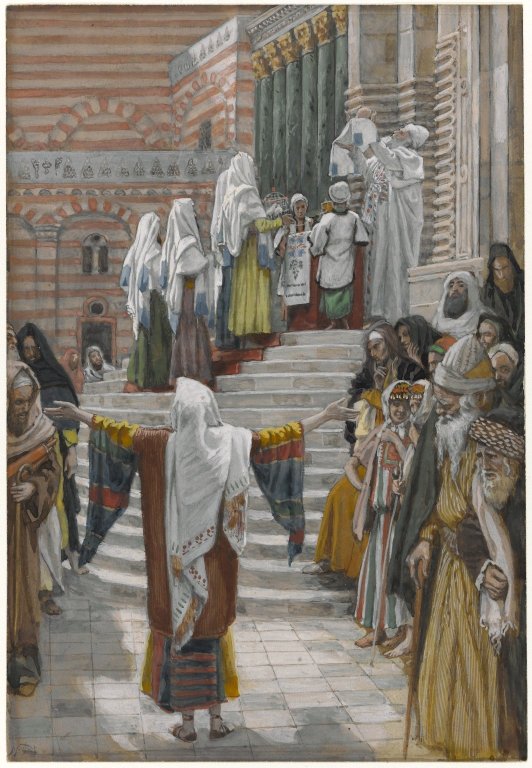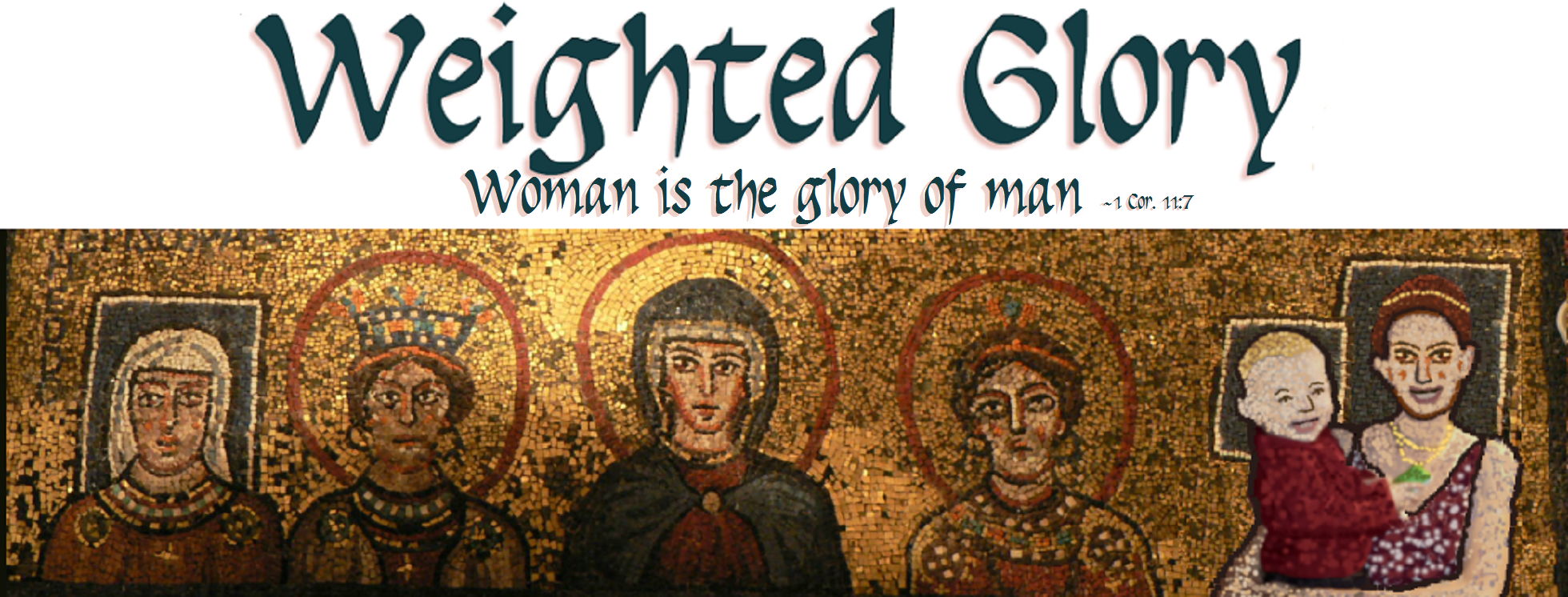
“Women are not called to public preaching!”
I’ve honestly never understood people who take this position given that the Bible contains a very specific example of a woman preaching in public:
There was also a prophet, Anna, the daughter of Penuel, of the tribe of Asher. She was very old; she had lived with her husband seven years after her marriage, and then was a widow until she was eighty-four. She never left the temple but worshiped night and day, fasting and praying. Coming up to [Mary, Joseph, and the baby Jesus] at that very moment, she gave thanks to God and spoke about the child to all who were looking forward to the redemption of Jerusalem. (Luke 2:36-38 NIV)
Some notes on this passage:
– The temple was both public and holy.
– Anna is noted as holding an authoritative calling (prophet). Paul said that the church was “built on the foundation of the apostles and prophets” (Ephesians 2:20) and that prophets were second in authority after apostles but before teachers and those with gifts of leadership (1 Corinthians 12:28).
– The text takes pains to establish Anna’s holiness. The wife of one husband (1 Timothy 5:9) then widowed, one who frequently fasted and prayed, and one who never left the temple.
– Most notably, Anna spoke about Jesus Christ not just to Mary and Joseph, but “to all who were looking forward to the redemption of Jerusalem.” In other words, this was not some doting grandmother figure uttering a private prayer over a sweet little newborn. Her meeting with the infant Christ prompted her to turn and preach Jesus Christ to all those gathered there who were expecting a Messiah.
I honestly have no idea how complementarians and other hierarchists try to conform this passage to their anti-woman theology, but I’ll hazard some guesses:
“The text doesn’t say who Anna preached to! Maybe she preached to just women!”
Sorry Charlie, but the Greek for “all who were looking forward to” there is “πᾶσιν τοῖς προσδεχομένοις” and it’s masculine dative plural, meaning men formed some part of the group Anna preached to.
“A temple isn’t the same thing as a church!”
Are you kidding me? The adult Jesus would later call the temple God’s “house” (Matthew 21:13). Not only is it analogous to a church, it is—if anything—a more holy location than the average modern-day church. That Anna’s preaching took place at the temple makes this passage more significant for the orthodoxy of female preaching, not less.
“But the text doesn’t say how big the group was! Maybe this was still a semi-private gathering!”
The temple was always crowded—and especially crowded with Jews who believed the Messiah would come—and the inclusion of the word “all” implies that a crowd was involved. Had a smaller group been intended, Luke could have simply excluded the “all” or he could have said “a few.” No, when Anna preached Christ that day, she really preached.
“Maybe God only called Anna to preach Christ because no worthy men could be found!”
This is also known as “the Deborah defense” (Judges 4), the idea that God only calls women to leadership and preaching positions when no worthy men are willing or able. But Joseph and Simeon were standing right there. You’re telling me those two were unworthy of serving as the first Christ evangelist? Please.
Conclusion: I get that those who forbid female preaching do so because they believe they are adhering to passages like 1 Corinthians 14:34-36 and 1 Timothy 2:8-15. I really do. (Note that I have already rebutted the absurd notion that 1 Corinthians 14 is about female preaching, and my article on 1 Timothy 2 is forthcoming.)
However, if your church will not allow a woman to stand before your congregation and proclaim Jesus Christ to all who are looking forward to the New Jerusalem, then your church is in defiance of what the Bible teaches about how God calls women.
To those who have set themselves in opposition to the holy calling of God’s daughters, I say to you: you are in error because you do not know the Scriptures or the power of God.




Very informative